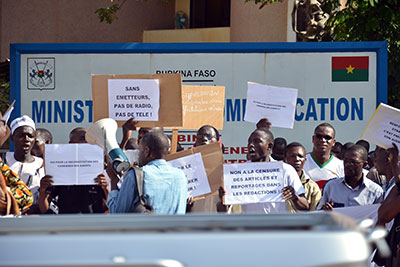Mohamed Keita/CPJ Africa Advocacy Coordinator
Mohamed Keita is advocacy coordinator for CPJ's Africa Program. Keita has written about independent journalism and development in sub-Saharan Africa for publications including The New York Times and Africa Review, and has appeared on NPR, the BBC, Al-Jazeera, and Radio France Internationale. Keita has also given presentations on press freedom at the World Bank, U.S. State Department, and universities. Follow him on Twitter: @africamedia_CPJ.
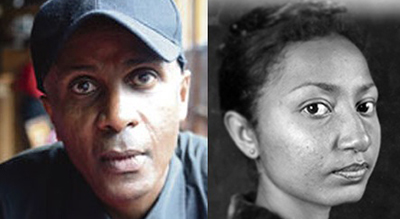
Sakharov and the fight for a free press in Ethiopia
In 1968, Andrei Sakharov braved censorship and personal risk in the Soviet Union to give humanity an honest and timeless declaration of conscience. That same year, Ethiopia’s most prominent dissenter, Eskinder Nega, was born. In January 1981, a year into Sakharov’s exile in the closed city of Gorky, Reeyot Alemu, another fierce, Ethiopian free thinker,…
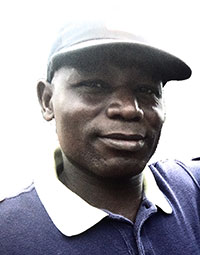
Jailed Burkinabe journalist appeals to African Court
Journalist Lohé Issa Konaté has been imprisoned in Burkina Faso since he was convicted in October of criminal defamation over articles in private weekly L’Ouragan alleging corruption and abuse of power at the office of the public prosecutor. In May, an appeals court rejected his appeal and upheld the 12-month sentence, according to defense counsel Halidou…
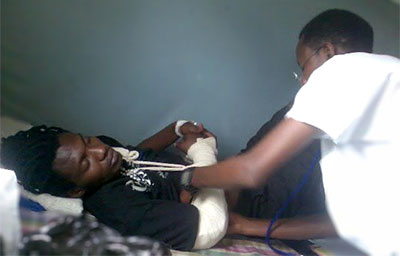
Burundi reporter shot by police for seeking information
Burundi’s government took unusually swift action last week in response to the police shooting of a radio reporter, after the journalist sought information at a roadblock in the capital Bujumbura where market vendors were allegedly being “taxed” for passage. Perhaps the shooting could have been averted if authorities had bothered to discipline officers involved in…
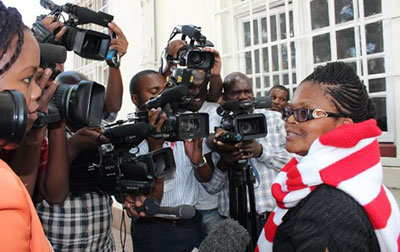
Zimbabwe frees prominent lawyer Mtetwa on bail
Beatrice Mtetwa, a tenacious lawyer who has won accolades for stubbornly defending journalists and others persecuted by Robert Mugabe’s regime in Zimbabwe, regained her freedom today after a hellish week that began on March 17 when she was arrested and charged with the criminal offense of “defeating or obstructing the course of justice.”

Where is Eritrean Information Minister Ali Abdu?
Eritrean Information Minister Ali Abdu Ahmed, government spokesman and censor-in-chief of the Red Sea nation, has been invisible in the past few weeks. The total absence of any independent press in Eritrea has allowed the government to maintain complete silence in the face of mounting questions and surging Internet rumors of his defection. It was…
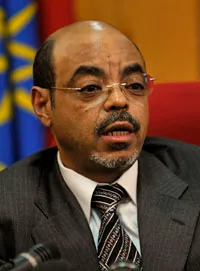
In Meles’ death, as in life, a penchant for secrecy, control
Ethiopians awakened this morning to state media reports that Prime Minister Meles Zenawi, 57, the country’s leader for 21 years, had died late Monday in an overseas hospital of an undisclosed disease. Within seconds, Ethiopians spread the news on social media; within minutes, international news media were issuing bulletins. Finally, after weeks of government silence…
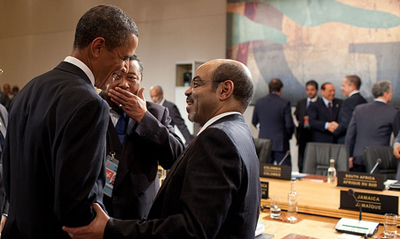
US senator condemns Ethiopia’s persecution of the press
On Wednesday, the same day the White House announced a strategic plan committing the United States to elevating its efforts in “challenging leaders whose actions threaten the credibility of democratic processes” in sub-Saharan Africa, a senior member of the U.S. Congress challenged the erosion of press freedom in a key U.S. strategic partner in the…
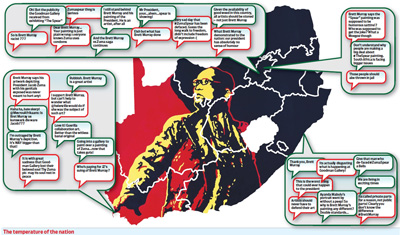
South Africans clash on Twitter over #Zumaspear
South African journalist and arts critic Charl Blignaut made what turned out to be an excellent prediction. “Of all the work on show, it’s this depiction of the president that will set the most tongues wagging and most likely generate some howls of disapproval,” he wrote on May 13 in a review of an art…
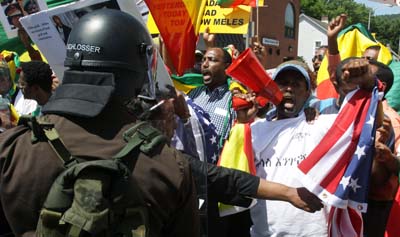
Members of Congress urge Meles to end repression
Two members of the U.S. Congress, a Republican and a Democrat, have publicly voiced indignation at Ethiopia’s persecution of journalists under the leadership of Prime Minister Meles Zenawi, with both declaring that stability and security are enhanced by press freedom.
